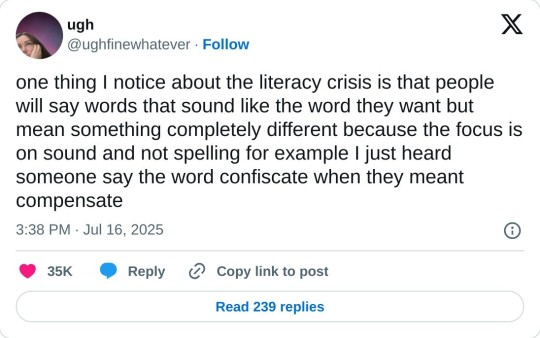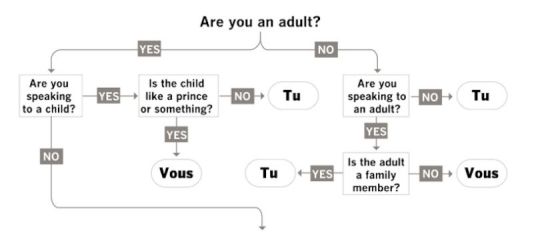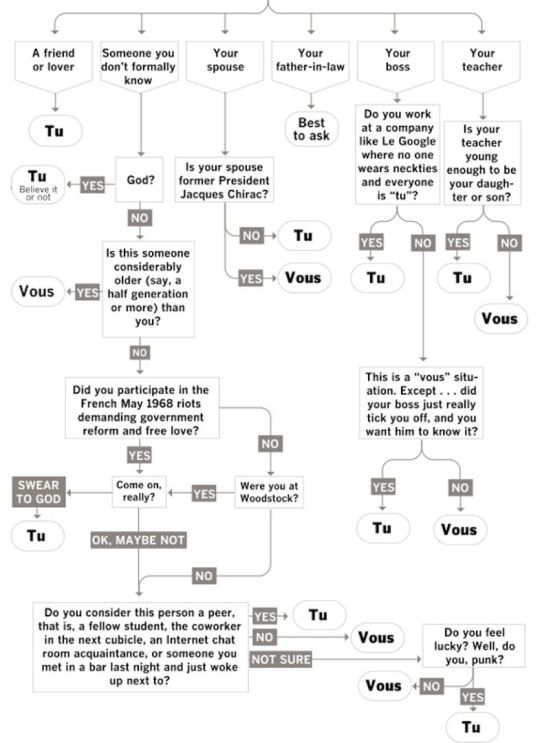#language
Explore tagged Tumblr posts
Text

omg I've heard people do this! Several times!
350 notes
·
View notes
Text
Almost a decade later and there's a fun update to this paper!
Eight years after this original study Şeyda Özçalışkan, Ché Lucero and Susan Goldin-Meadow have a sequel.
The original paper showed that blind and sighted people who speak the same language have similar gestures to represent events. These gestures can't have been acquired through visual learning, so this was evidence that gesture and speech must be all bound up together in the brain. But there was still a question about how deeply they're tied together. Perhaps this was something that adults settled into as they got older.
In this new paper, Özçalışkan and team looked at the speech and gesture of blind and sighted Turkish children between the ages of five and ten years old. They used the same methods and targeted the same kind of action verbs and gestures. It's worth checking out the paper for the frolicking doll dioramas they set up as part of the experiment.
Even the youngest children showed the same kind of gesture patterns as adult Turkish speakers. This means that these kinds of patterns are part of language learning and not something that gets added on top later in life. That is further evidence for the original argument that speech and gesture are a package deal.
It's so great to see this team continuing to refine and support the original findings.
From the "research highlights" section of the paper:
Gestures, when produced with speech (i.e., co-speech gesture), follow language-specific patterns in event representation in both blind and sighted children.
Gestures, when produced without speech (i.e., silent gesture), do not follow the language-specific patterns in event representation in both blind and sighted children.
Language-specific patterns in speech and co-speech gestures are observable at the same time in blind and sighted children.
The cross-linguistic similarities in silent gestures begin slightly later in blind children than in sighted children.
Citation
Özçalışkan, Şeyda, Ché Lucero, and Susan Goldin‐Meadow. (2024). Is vision necessary for the timely acquisition of language‐specific patterns in co‐speech gesture and their lack in silent gesture?. Developmental Science, 27(5), e13507. https://doi.org/10.1111/desc.13507
Blind people gesture (and why that’s kind of a big deal)
People who are blind from birth will gesture when they speak. I always like pointing out this fact when I teach classes on gesture, because it gives us an an interesting perspective on how we learn and use gestures. Until now I’ve mostly cited a 1998 paper from Jana Iverson and Susan Goldin-Meadow that analysed the gestures and speech of young blind people. Not only do blind people gesture, but the frequency and types of gestures they use does not appear to differ greatly from how sighted people gesture. If people learn gesture without ever seeing a gesture (and, most likely, never being shown), then there must be something about learning a language that means you get gestures as a bonus.
Blind people will even gesture when talking to other blind people, and sighted people will gesture when speaking on the phone - so we know that people don’t only gesture when they speak to someone who can see their gestures.
Earlier this year a new paper came out that adds to this story. Şeyda Özçalışkan, Ché Lucero and Susan Goldin-Meadow looked at the gestures of blind speakers of Turkish and English, to see if the *way* they gestured was different to sighted speakers of those languages. Some of the sighted speakers were blindfolded and others left able to see their conversation partner.
Turkish and English were chosen, because it has already been established that speakers of those languages consistently gesture differently when talking about videos of items moving. English speakers will be more likely to show the manner (e.g. ‘rolling’ or bouncing’) and trajectory (e.g. ‘left to right’, ‘downwards’) together in one gesture, and Turkish speakers will show these features as two separate gestures. This reflects the fact that English ‘roll down’ is one verbal clause, while in Turkish the equivalent would be yuvarlanarak iniyor, which translates as two verbs ‘rolling descending’.
Since we know that blind people do gesture, Özçalışkan’s team wanted to figure out if they gestured like other speakers of their language. Did the blind Turkish speakers separate the manner and trajectory of their gestures like their verbs? Did English speakers combine them? Of course, the standard methodology of showing videos wouldn’t work with blind participants, so the researchers built three dimensional models of events for people to feel before they discussed them.
The results showed that blind Turkish speakers gesture like their sighted counterparts, and the same for English speakers. All Turkish speakers gestured significantly differently from all English speakers, regardless of sightedness. This means that these particular gestural patterns are something that’s deeply linked to the grammatical properties of a language, and not something that we learn from looking at other speakers.
References
Jana M. Iverson & Susan Goldin-Meadow. 1998. Why people gesture when they speak. Nature, 396(6708), 228-228.
Şeyda Özçalışkan, Ché Lucero and Susan Goldin-Meadow. 2016. Is Seeing Gesture Necessary to Gesture Like a Native Speaker? Psychological Science, 27(5) 737–747.
Asli Ozyurek & Sotaro Kita. 1999. Expressing manner and path in English and Turkish: Differences in speech, gesture, and conceptualization. In Twenty-first Annual Conference of the Cognitive Science Society (pp. 507-512). Erlbaum.
85K notes
·
View notes
Text
"English isn't my-"
Hush now my friend, and let me read the absolute beauty of a fic that you have bestowed this world and humiliated the first English speakers with
#x reader#fanfic#bakugou x reader#bucky x reader#dabi x reader#dean winchester x reader#draco x reader#hawks x reader#peter parker x reader#steve rogers x reader#tony stark x reader#sherlock x reader#x men#sebastian stan x reader#avengers x reader#deadpool x reader#wolverine x reader#english#writer stuff#writing#language#descendants x reader#love it#fantastic#incredible#majestic#awesome#funny#entertainment#one direction
27K notes
·
View notes
Text
there's this word in Serbian 'vukojebina' which literally means 'the place where wolves go to fuck' but they use it to mean 'in the middle of nowhere'. it sure does the job well, but the visual stayed with me longer than I would have liked it to.
#linguistics#language#langblr#serbian#don't know if it's also used in Croatian Bosnian or Montenegrin
22K notes
·
View notes
Photo

sorry @acriel but this needs to be added for clarification purposes


Vous vs. Tu, French “you”.
Chart from the LA Times.
#mdrrrrrrrr#accurate#simple#“simple”#chart#for vous et tu#usted#kinda stuff#french#language#post#frenchblr#upthebaguette
22K notes
·
View notes
Text
One of the biggest issues of moving to England as a person who is Ukrainian AND neurodivergent is not knowing how to answer the small talk question of "how are you", but today I was reminded that Ukrainian blessed me with the phrase that roughly translates as "living is hard but dying would be a pity" and can we please naturalise it so I can use it all day every day
#language#small talk#it took me months to realise that nobody actually cares about the actual answer#why is English small talk like this
40K notes
·
View notes
Text
Furry fanfic filled with very puzzling descriptions of what various characters are doing with their penises until you realise it's taking place in an alt-historical linguistic milieu where the Latin pēnis never became a genital euphemism and it's just talking about their tails.
#media#fandom#fanfic#aus#alt history#furry#anthro#language#linguistics#word nerdery#penis mention#(technically)
992 notes
·
View notes
Text
stop trying to use english to describe words and concepts that have no english translation. some things should remain mysterious.
17 notes
·
View notes
Text
That's three "indeeds," thought William, who noticed things like this. Three "indeeds" used by a person in one brief speech generally meant an internal spring was about to break.
Terry Pratchett, The Truth
#william de worde#the bursar#the truth#discworld#terry pratchett#conversation#journalist#language#words#power of words#observant#indeed#about to break
118 notes
·
View notes
Text

Ye olde misinterpretation
The word ye in names such as Ye Olde Inn (meaning 'the old inn') was originally simply pronounced the. The pronunciation with y is due to a misinterpretation of the first letter. Ye originated as a second-best way of writing þe. The first letter, þ, was called thorn. It was a letter for the th sound that originated in Old English.
Where did þ come from? How did it disappear? And why was it substituted by y in the word ye? Click my new infographic to read the story of the letter thorn and ye olde misinterpretation.
#historical linguistics#linguistics#language#etymology#english#latin#lingblr#spelling#old english#middle english#proto-germanic#old norse#gothic
91 notes
·
View notes
Text
#'fandom wank' is just more accurate than 'fandom discourse'
Absolutely, but can we also talk about how it seems like when I do see people talking about "fandom wank" a lot of the time they just mean "headcanons"? Like literally at some point in the past two decades someone recycled the term "fandom wank" and decided it referred to headcanons and I have no idea how that happened. I've seen this usage in multiple different places, it's bizarre
watching a video and realizing I miss the term "flame war", it was JUST tongue-in-cheek goofy enough of a term to describe how silly it was to carry on long arguments online over shit that doesn't matter and was often started/spurned by a troll. Now ALL of it is just "discourse" or "engagement" which feels like they put a godawful slap of PR paint over the surface of flame wars like a cheap landlord looking to charge 1000 dollars more for the same crumbling walls
14K notes
·
View notes
Text

Well, what tongue does the wind talk? What nationality is a storm? What country do rains come from? What color is lightning? Where does thunder goe when it dies?
-- Ray Bradbury
(London)
#rain#language#thoughts#ray bradbury#travel photography#london#england#uk#street photography#rainy day#questions#quote#photography#travel
98 notes
·
View notes
Text
why is horse and hair correspondent of one another. horse/hair, caballo/cabello, cheval/cheveux
#for my language enthusiasts#language#lenguaje#spanish language#english language#español#french language#français
53 notes
·
View notes
Note
As soon as I heard Bradley Cooper speak I had a feeling you had a hand in a beautiful language in an inspiring movie. Proud to have followed such an influential conlanger since the GOT days
You'll really get to hear it shine in future stuff!
34 notes
·
View notes
Text
Wooster: “I say, Jeeves, what’s the hold-up with the bally pudding? We've about run out of topics to natter on about whilst we wait.”
Jeeves: “There was a snafu with the ganache, I’m sorry to say, sir.”
(yeah, I’m aware that the term snafu — Situation Normal, All Fucked Up — wasn’t coined until WWII. But if people can write Jeeves & Wooster talking about Instagram and Bitcoin, I can be excused a smaller anachronism.)
sentence I just read on reddit ran "there was a snafu with the ganache" and i think these are some of the best syllables out there. there was a gnafu with the snanache. there was a snache with the ganafu. etc.
10K notes
·
View notes